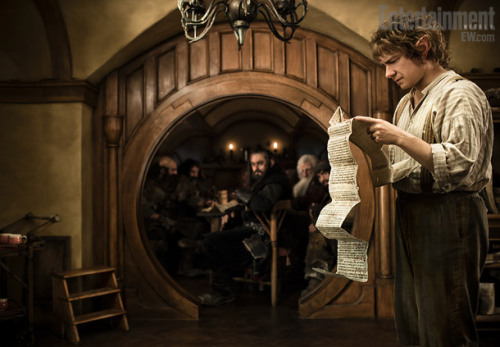I think it was a smart decision to humble Tony at the very start of the film. Afghani insurgents blow him up and capture him for nefarious purposes, and thus allow Tony to see his all-American Patriotic Weapons in enemy hands. That would break most people, and depending on how you read the film it may break Tony too. Suddenly Tony's brought down to the level of the common man and given a choice—give in to the insurgents' demands, or invent something that would allow him to escape. And that's where we see his strength. Tony Stark presents as a playboy, but he's got principles that he stands by, and he stands up to authority, both classic superhero traits. (Of course, Tony stands up to positive authority too….)
Some superheroes fight individual villains with individual motives—the Green Goblin wants Spider-Man humbled and killed, Kraven wants to prove his prowess as a hunter, Doc Oc wants to continue his experiments and get revenge. Some superheroes fight individual villains with larger, more widespread motives—the Joker wants ultimate control of Gotham's underworld, Loki wants control of Asgard and to prove his worth, Lex Luthor wants money. And then some superheroes fight individual villains who are representative of larger forces, and that's Ironman, at least in the first movie. He's a weapons manufacturer who fights terrorism and a corporate American who fights corporate America. In this era of wars and politics and Americans shouting their own praises and a lot of the world (Americans included) upset with the wars, politics, and shouting, Tony Stark is somebody we can get behind.
Of course, that's not the only reason why I like Tony Stark. I also like him for his crazy, manic Tony Stark logic (Insurgents still have my weapons, so I'm going to build a supersonic metal suit with an EMP and a flamethrower), his ability to fast-talk everyone around him, and the chemistry he has with Pepper Potts. More on that in a sec. Also, since I might as well admit to being occasionally shallow, Robert Downey Junior takes off his shirt a couple times.
Earlier this week I had a conversation on Twitter with @AmaliaTd and @SuSmithJosephy about superheroines as treated by Hollywood, specifically the fact that no matter how awesome they are in print, they're weakened on film and turned into damsels in distress more often than not. Ironman's the rare beast where strong women get to be secondary characters and do stuff in their own right. Pepper Potts, Tony's personal assistant, while admittedly the only woman in most of the film, gets things done, outmaneuvers Tony on several occasions, doesn't take his BS, deals out snark of her own, and has an important role in the climax. In a sense you could say she saves Tony's life. And then Tony doesn't win her heart at the end, not quite. Admirable, in a Hollywood film. I seem to remember the same strong women thing going on in Ironman 2, but since I've still only seen it once, I'll hold off on commenting.
Ironman also feels like the most science fictional superhero 'verse I've encountered so far. Most superhero worlds have some aspect of science fiction to them (mostly mutated DNA and advanced technology), but Ironman takes things a step further. Tony Stark's a genius inventor, after all. He has a robotic house, several lab robots, several Ironman suits, holographic blueprint programs, and of course, he also as the arc reactors. A lot of the stuff is, if not possible today, nearly possible, and that manages to make the film simultaneously "gosh wow cool future!" and grounded in reality. I've seen similar technology on Youtube.
(Yes, I know that Tony Stark's world is also the world of the X-Men, Spider-Man, Thor, the Hulk, and the Fantastic Four, all of which definitely have science fiction elements, but somehow, even with the Marvel Studios continuity, Tony's Malibu home seems more advanced and real than anywhere else except maybe Asgard.)
I'm not as hooked on Ironman/Tony Stark as a character as I am some of the other Marvel characters—I'm not very likely to pick up an Ironman anthology this year—but I've yet to watch the film without getting a splitting grin within a couple minutes. And I have hopes that the humor, pacing, and characterization in Ironman find their way to The Avengers, because they'd make that movie awesome. Since Joss Whedon's helming, I may actually get my wish. Also, I really do need to acquire Ironman 2….
(Yes, I know that Tony Stark's world is also the world of the X-Men, Spider-Man, Thor, the Hulk, and the Fantastic Four, all of which definitely have science fiction elements, but somehow, even with the Marvel Studios continuity, Tony's Malibu home seems more advanced and real than anywhere else except maybe Asgard.)
I'm not as hooked on Ironman/Tony Stark as a character as I am some of the other Marvel characters—I'm not very likely to pick up an Ironman anthology this year—but I've yet to watch the film without getting a splitting grin within a couple minutes. And I have hopes that the humor, pacing, and characterization in Ironman find their way to The Avengers, because they'd make that movie awesome. Since Joss Whedon's helming, I may actually get my wish. Also, I really do need to acquire Ironman 2….
